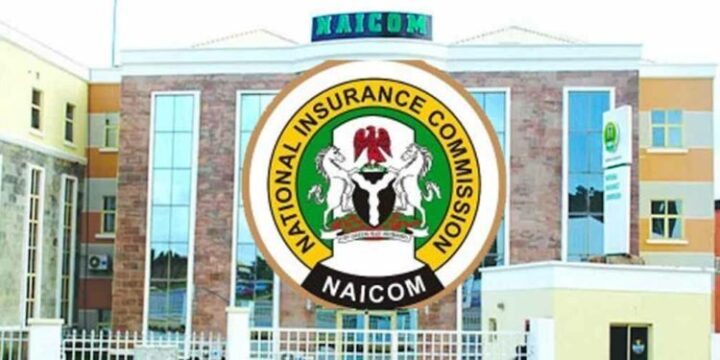The National Insurance Commission (NAICOM) has reiterated the pivotal role of the insurance industry in addressing the economic and environmental challenges posed by climate change. The Commission emphasized that insurance must move beyond traditional risk coverage to become a strategic tool for climate resilience, disaster risk management, and sustainable development across Nigeria and West Africa.
Speaking at the 2025 West African Insurance Companies Association (WAICA) Education Conference in Lagos, the Commissioner for Insurance, Mr. Olusegun Ayo Omosehin, stated that climate change has evolved from being merely an environmental concern to a significant macroeconomic issue that affects financial systems, national budgets, and global supply chains. He noted that the increasing frequency of floods, droughts, and extreme weather events has exposed the inadequacy of conventional government responses, calling for insurance-based solutions to manage the associated risks more effectively.

Omosehin stressed that the insurance sector must adopt a proactive approach by integrating climate risk management into its operational and regulatory frameworks. According to him, “Insurance is no longer just about protecting assets—it is about ensuring resilience. As climate impacts intensify, we must develop products that anticipate these risks and provide timely financial relief when disasters occur.” He highlighted that the Commission’s focus is now centered on innovation, collaboration, and technology adoption to strengthen the industry’s capacity to absorb and manage climate shocks.
He called on insurers and reinsurers across West Africa to design new products tailored to regional climate realities. Among the options being explored are parametric and microinsurance solutions, which provide swift payouts based on pre-agreed climate triggers such as rainfall levels or temperature thresholds. These models, Omosehin explained, can help support vulnerable communities, smallholder farmers, and informal workers who are most affected by climate-induced losses but often lack access to conventional insurance.
In addition, the Commissioner emphasized the importance of data and technology in driving effective climate risk management. He urged industry operators to invest in advanced climate modeling tools, satellite monitoring systems, and digital data platforms that can predict and assess climate risks with higher precision. Such tools, he said, would enable insurers to price risk more accurately and design products that are both affordable and sustainable.
Omosehin also highlighted the need for collaboration among West African countries, noting that climate-related disasters often transcend borders. By pooling resources and sharing data across the region, insurers can diversify risks and strengthen financial resilience. “Regional cooperation under the WAICA framework will help us create a more robust risk-sharing system. Climate change is a global problem, and our response must be collective,” he said.
The Commissioner further noted that the Nigerian Insurance Industry Reform Act (NIIRA) 2025 represents a major step forward in aligning the regulatory environment with climate realities. The Act introduces stronger capital requirements, expands compulsory insurance classes to include agricultural and environmental risks, and encourages public-private partnerships for climate adaptation projects. According to him, these measures are intended to position the insurance industry as a central pillar in the country’s climate resilience strategy.
In her remarks, Minister of State for Finance, Dr. Doris Uzoka-Anite, supported NAICOM’s initiative, describing climate change as an emerging financial emergency. She warned that African economies lose billions of dollars each year to climate-related disasters, leading to loss of infrastructure, reduced agricultural productivity, and heightened fiscal strain. The Minister emphasized that integrating insurance mechanisms into national climate policies is critical to cushioning these impacts and ensuring faster post-disaster recovery.
The Minister further encouraged insurers to expand their coverage to include underserved sectors such as agriculture, small-scale enterprises, and low-income communities. “Insurance must no longer be a luxury for the few—it should become a necessity for all,” she stated. She added that accessible insurance coverage for vulnerable groups will help strengthen economic resilience and protect livelihoods against future climate disruptions.
Industry experts at the conference echoed the need for capacity building within the insurance sector. They argued that insurers must develop deeper technical expertise in climate science, actuarial modeling, and environmental risk assessment to keep pace with the changing global landscape. Training programs, academic partnerships, and regional knowledge-sharing initiatives were identified as critical to achieving this goal.
Omosehin also highlighted NAICOM’s plans to promote greater financial inclusion and awareness. He explained that the Commission is working with development partners to expand insurance literacy and ensure that communities understand how to use insurance as a risk management tool. “People must see insurance as an investment in their future, not an expense,” he said.
Analysts believe that NAICOM’s renewed emphasis on climate-related insurance marks a turning point for the Nigerian insurance industry. With growing climate risks threatening food production, infrastructure, and housing, the sector’s proactive engagement could play a decisive role in protecting the economy. Experts note that with the right regulatory support, adequate capital, and innovative products, insurance can help reduce the financial burden of disasters and enhance long-term national stability.
In conclusion, NAICOM’s message reflects a fundamental shift in how insurance is viewed—moving from a reactive mechanism that responds after disasters to a proactive system embedded in national planning and development. As the effects of climate change continue to escalate, the Commission believes that only a resilient and innovative insurance sector can help safeguard communities, support recovery efforts, and sustain Nigeria’s path toward sustainable growth and economic security.
Support InfoStride News' Credible Journalism: Only credible journalism can guarantee a fair, accountable and transparent society, including democracy and government. It involves a lot of efforts and money. We need your support. Click here to Donate
